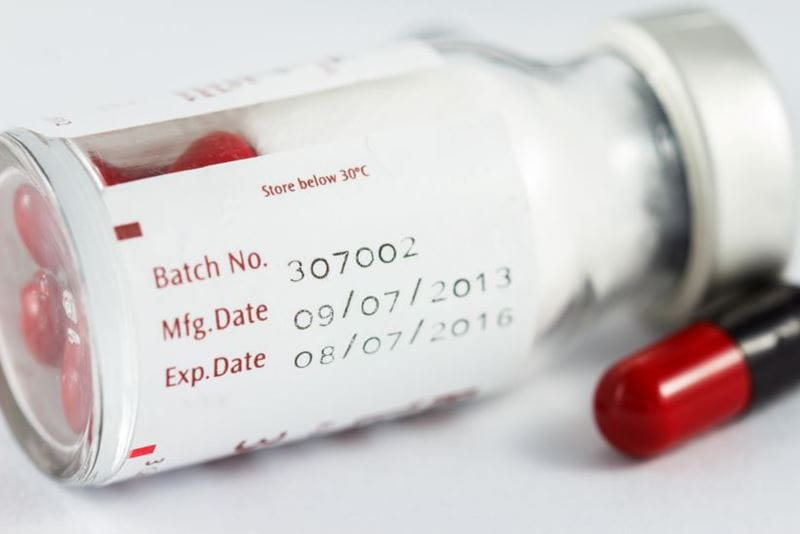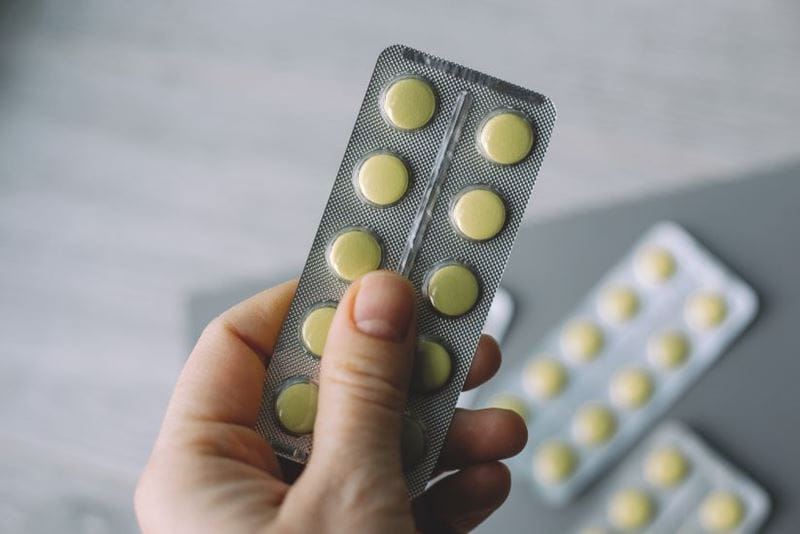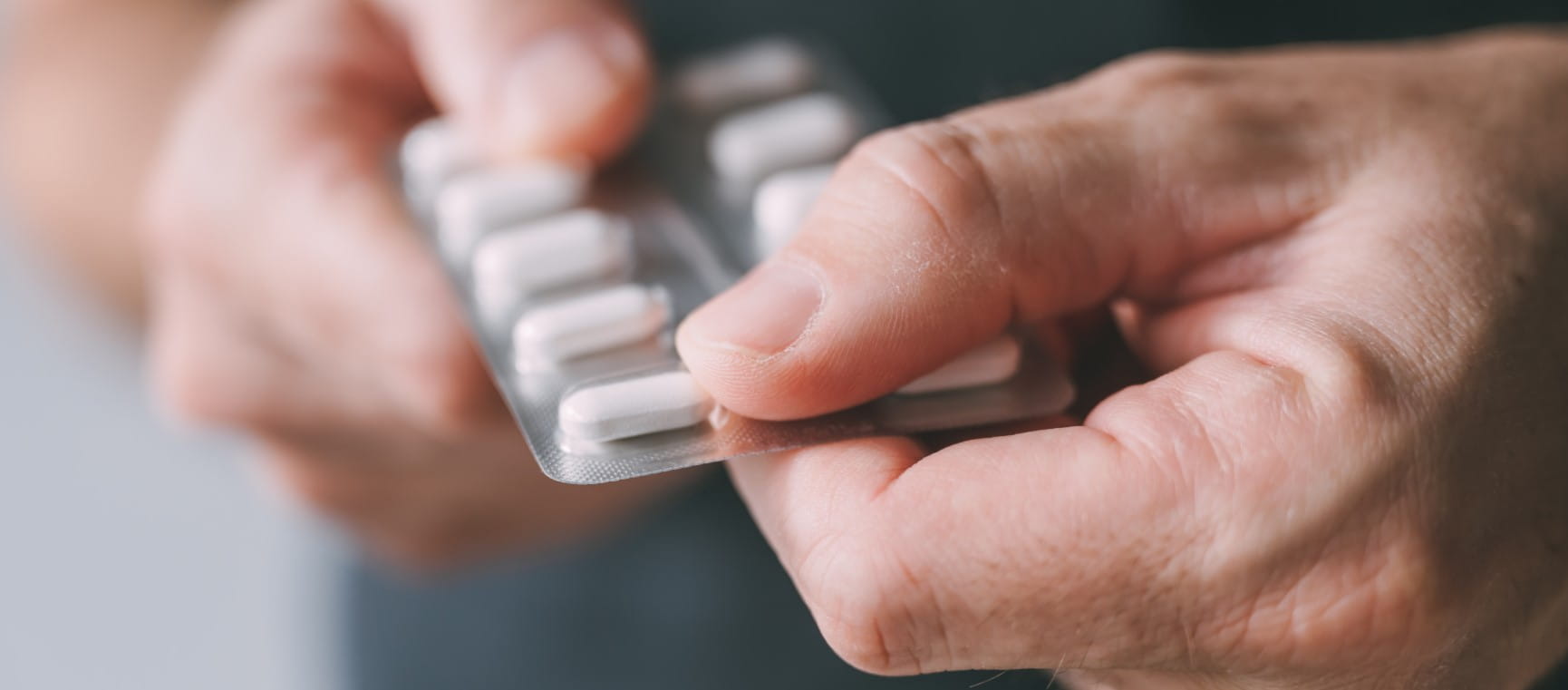
We’ve all been there – you feel a blinding headache kicking in or that itchy rash has flared again and you search your bathroom cabinet, only to find the medication has expired.
Most of us will have an impressive stash of pills and potions to hand too, if research from Co-op Health is anything to go by. Its research revealed a third of Brits (33%) never get rid of leftover medication and another third admitted they have used medication past its expiry date.
Absolutely not, say the experts. “There is no leeway,” says community pharmacist Sultan Dajani. “The best-case scenario is that the medicine wouldn’t work at all and have no effect. But that in itself could have a drastic effect on your health."
"The expiry date is there for a reason and not a con job from the manufacturers to make you buy more.”
Elen Jones, director of pharmacy at the Royal Pharmaceutical Society, agrees. “The expiry date lets us know that up until that date, the medicine is safe, effective and will work as intended.
“After expiry, medicines can start to degrade. This can reduce their effectiveness as the active ingredients break down. In some cases, these breakdown products may be harmless, but in others they could cause harmful side effects. To stay safe, it’s best not to use medicines beyond their expiry date.”
Once opened, the medication may no longer be sterile.
“Even a dressing may cause problems if the packaging is no longer sterile – you might use it on an infected leg wound and it will make it worse,” says Dajani.
“And although eye or ear drops may say on the box that they expire within three years, as soon as they’ve been opened the clock is ticking as they don’t have preservatives and will have to be used within 28 days. If you use them on your eyes after that you’ll just make the infection worse and might even cause scarring.”
Liquid antibiotics such as amoxicillin usually go off after seven days once opened, even if the expiry date on the bottle says two years, says Dajani.
Steroid creams won’t be absorbed as well. “It’s because the excipients [ingredients that enhance the active ingredient’s effects] have broken down,” he says.
Nitroglycerin, which is prescribed for relaxing the blood vessels to prevent and relieve angina attacks, plus insulin for diabetes, are another two drugs where the expiry date needs to be strictly adhered to.
“You cannot risk these being less effective for obvious reasons,” says Dajani.

“How and where you store your medicines can affect how well they work. They should be stored in a cool, dry place away from heat and humidity,” says Jones.
“Heat and sunlight can cause medicines to degrade, making them less effective. That’s why most medicines should be stored at a stable room temperature – ideally between 15 and 25°C.”
Keeping your medicines in a bathroom, where you have baths and showers, could make them less effective or even spoil them.
“Instead, keep them in a bedroom drawer or cupboard, or in a kitchen cabinet that’s away from sources of heat such as the hob, oven or windowsill,” says Jones. “If you live with small children or pets, medicines should be stored in a locked container, out of sight and reach.”
She adds that some medicines may have specific storage instructions (for example they may need to be stored in a fridge) and advises you follow advice given on the packaging or from your pharmacist.
Dajani says some drugs such as thyroxine (used to treat underactive thyroid) and Epilim (for epilepsy) should never be "de-blistered" and stored outside blister packs because they are hyperscopic. This means they absorb water from the air and will lose potency over several weeks so won’t work as well.
“If you have difficulties getting the drugs out of a blister pack because you have arthritis, talk to your pharmacist – it may be okay to store some in a pill box but only for a week or so,” says Dajani.
“I’ve recently had two patients hospitalised because their dosages of thyroxine had been increased too high as their doctor thought the thyroxine pills weren’t working. What had actually happened was that they had taken them out of the blister packs and as a result their pills hadn’t worked as well.”

Dajani stresses that even if a medicine is still in date, you should always check with a pharmacist if it doesn’t look or smell right.
“If tablets are powdery or capsules are stuck together, or a medicine is discoloured, ask for advice,” he says.
“If creams are crusty, liquids are thickened or separated, aspirin smells of vinegar or antibiotics of rotten milk, they have probably been damaged or incorrectly stored.”
Over one billion prescriptions are dispensed in England each year, (113 million in Scotland, 84.6 million in Wales and 45.4 million in Northern Ireland) and around 77% are for repeat prescriptions. “It’s easy to reorder everything on your repeat list ‘just in case’, but this can lead to stockpiling at home and unnecessary waste,” says Jones.
“If you find packs of medicines building up, speak to your local pharmacist. They can help you understand what each medicine is for and whether it’s still needed.
“A 2010 report estimated that around £90 million worth of unused prescription medicines are kept in people’s homes at any one time. If you have expired or unwanted medicines, you can return them to any pharmacy for safe disposal.”
Vitamins and other supplements can degrade too, says registered nutritionist Rob Hobson from Healthspan. “It’s a case of a slow decline over months rather than days or weeks, but by the time you’re a year past the date, you’re definitely going to be getting much less than what it says on the label.
“Most of them don’t become dangerous after their expiry date. It’s usually reduced potency and not a safety issue. Over time, the active ingredients can degrade so you won’t get exactly what you expect from reading the label.
"This is important if you are taking them for a therapeutic purpose such as iron deficiency or folic acid in pregnancy.”
“Some supplements will remain stable for a year or more past their expiration date if you store them properly (in a cool place rather than a steamy bathroom or kitchen windowsill), but others are going to degrade more quickly,” says Hobson.
“Water-soluble vitamins like B and C are more likely to degrade quickly as they are prone to degradation from humidity, light and heat.
"Fat-soluble vitamins like A, D, E and K are a bit more stable but can also degrade again if they are exposed to light or heat.”

“Fish oils can oxidise and go rancid, especially if they are exposed to light, heat, or oxygen,” says Hobson.
“This is not just about potency, but they can start to smell and may even cause a bit of gut irritation. I would always suggest storing them in a cool, dark place, and if they smell 'off' then chuck them away.”
“Lots of strains of probiotics are sensitive to moisture and heat and need to be kept in the fridge,” says Hobson.
“Tablets are going to be more stable than powders or liquids. They don’t usually go "off", but again their effectiveness declines after the expiry date like other supplements.
“Keep them in a dry, cool place, not in the bathroom or near a kettle. Once past their date the benefit is questionable.”
Medical herbalist Dr Chris Etheridge, chair of the British Herbal Medicine Association, says all good quality herbal medicines will have a use-by date, but if used after that date they are unlikely to be toxic – just less potent.
“The best advice is to always stick to the expiry date, but the expiry date is really an estimation of how long the herbal ingredient will be stable for – it’s general guidance that is usually considerably less than is needed,” says Etheridge.
“I’ve never come across any issues with toxicity with using herbal tablets or tinctures that are slightly past their expiry date, but if in doubt don’t take them. If you did accidentally take some that were a few months after their expiry date they would be unlikely to harm you.”
Etheridge says herbal medicines should be kept sealed and stored in a cool dark place away from sunlight, but not in the fridge (unless otherwise indicated).

Health insurance for people over 50 that provides a quicker route to diagnosis and planned medical treatment in a private facility.
Underwritten by Bupa Insurance Limited.


Facial weakness, a sudden headache and dizziness can all be signs of a stroke, we've got the facts from an expert.

Knee pain is more common as we age: to help we've got the best advice from 3 leading experts with easy ways to make a difference.

Do you know the symptoms of a heart attack? Here’s what to look out for, and how to prevent one.

Front, back or side? Which sleeping position is best for you as you get older, and which ones you should avoid


